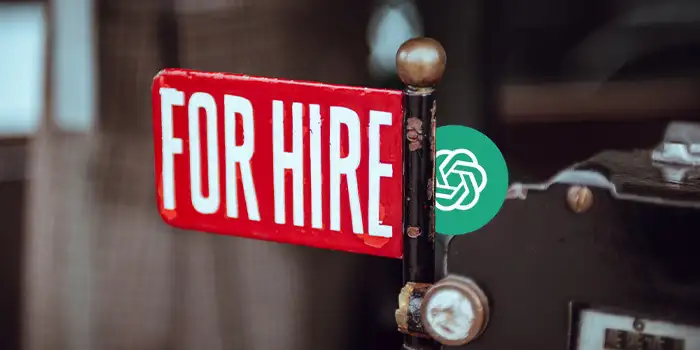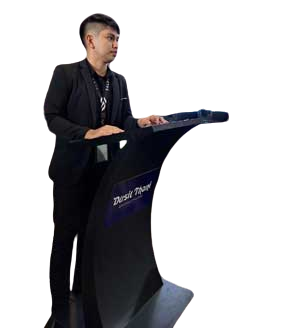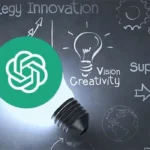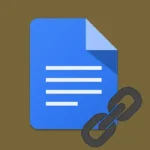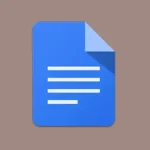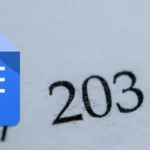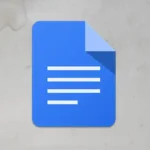I am a big fan of tech, and I find myself at the forefront of the ongoing debate surrounding ChatGPT and its potential impact on the job market. I’ve seen a rising number of people who are worried that AI could soon replace their jobs, causing massive unemployment.
The complete replacement of human jobs is unlikely. While ChatGPT and AI technologies can automate routine and repetitive tasks, they often lack the nuanced skills that are required for many complex job roles. Instead, the use of AI, like ChatGPT, is more likely to enhance human talents and provide new possibilities rather than eliminate them.
In this article, you’ll learn:
Will ChatGPT Replace Jobs?
As you can see in today’s world, technology is really advancing at a rapid pace, and we have artificial intelligence that is becoming increasingly sophisticated.
ChatGPT is one example of AI technology that can engage in conversations and assist with various tasks. But will it replace human jobs?
Well, I believe that the complete replacement of human jobs is unlikely because they’re not as good as humans at everything, and I’ll explain why.
I know AI can do things that are boring and repetitive. Like, try to imagine a job where you have to check a lot of data and make sure it’s all correct. That’s pretty dull and can take a long time.
AI can do that kind of stuff super-fast and it won’t even get tired. So, it means that it can help humans by doing those boring tasks and saving them time.
But the thing here is that AI like ChatGPT doesn’t have all the skills that humans have. Some jobs need things like creativity and emotions, and I believe ChatGPT can’t really do that.
Let’s say you’re a skilled painter, it means that you need to use your imagination to make beautiful art right?
ChatGPT or other AI tools might be able to make some art too in the future, but it won’t have the same feelings and emotions that you put into your paintings. People will always love art that is made by humans because it’s special and unique.
There are also jobs where they need to talk to people and understand their feelings. Like teachers, therapists, or people who work in customer service.
ChatGPT can give information and answer basic questions, but it can’t really understand how someone feels or give them emotional support like a human can. People need that human connection and understanding because it feels like they are being valued.
Also, making and using AI tools like ChatGPT takes a lot of money and resources. Not all companies or businesses can afford to integrate AI into their working environment.
And sometimes, it’s just not practical to use AI instead of humans. There are a lot of jobs out there that are very specialized or need a personal touch, and ChatGPT might not be good at those things.
So, instead of getting worried that ChatGPT will replace your job, try to shift that thinking because the truth is AI can help humans do their jobs better.
It can do boring and repetitive study, give information, and help with tasks. Humans can focus on the things that AI can’t do, like understanding emotions and connecting with people.
In the end, AI and ChatGPT are cool tools, but they won’t take over all the jobs. I always believe that humans have special skills and talents that AI can’t match. So, stop worrying out there, jobs will still be there for us humans to do!
What Jobs Will ChatGPT Replace
While ChatGPT won’t completely replace jobs, there are certain tasks and positions where it can have a significant impact. Here’s a list of possible jobs that I believe ChatGPT can potentially take over a large portion of:
1. Customer Support Representatives
Customer support representatives are people who help customers with their questions and problems. But guess what? ChatGPT can help with that toot that’s why I believe AI can take a large portion of this job.
Let’s say you bought a new phone, and there’s a feature that’s not working. You then visit the company’s website and see a little chat box in the corner.
You type your problems and suddenly the AI chatbot that is ChatGPT featured pops up to help you out by giving you some troubleshooting tips to fix the problem.
Now, don’t get me wrong, I know human customer support reps are still important because there are problems that are tricky and unique that ChatGPT might not have all the answers.
The thing here is that ChatGPT can handle a lot of the basic and common questions, which can save time for both customers and the company.
2. Data Entry Clerks
These people are responsible for entering the information into computers like names, addresses, or numbers. I know there is a lot of work to be done here and it is sometimes boring.
But, let me tell you that ChatGPT can take over some of those tasks. For example, a big company decides to collaborate with OpenAI, the creators of ChatGPT.
They can work together to develop a special software tool that can help with data entry tasks, instead of hiring a bunch of data entry clerks which can save the company lots of money.
The software tool, powered by ChatGPT, would then take that data and input it into the computer really quickly and accurately.
With the software tool in place, there will be fewer employees specifically dedicated to data entry tasks.
Instead, the company may only require a smaller team of employees to oversee the software tool’s operations. They will only handle any errors or inconsistencies that may arise.
3. Virtual Assistants
As you can see, several businesses and people have developed millions of virtual assistants. They help us with different things, from organizing our schedules to finding answers to our questions.
But with the rise of AI and ChatGPT, some virtual assistants might have a harder time finding work.
When companies and people start using AI-powered virtual assistants like ChatGPT, they might not need as many human virtual assistants anymore.
This means that some existing virtual assistants could be at risk of losing their jobs or having fewer tasks to do. We can compare it to how things will change when new technology is introduced in our society.
4. Content Moderators
Checking and ensuring that the material on websites and social media is suitable is the responsibility of content moderators.
Do you know how sometimes people can post mean or inappropriate things on social media? Well, content moderators are there to monitor it and see to it that it is removed. ChatGPT can also help with that if it will be programmed for that specific task.
For example, if someone posts something with bad words and harmful images, ChatGPT can analyze it and flag it as something that needs to be removed.
But ChatGPT isn’t perfect. It might not always catch everything that’s why humans come in to review and make the final decision. The issue here is the workload of human content moderators may be reduced to some extent.
5. Transcriptionists
Transcriptionists are the ones who listen to audio or video recordings and type out everything they hear. I know it can be a lot of work because I have some experience. It can be difficult at times especially if the recording is long or has difficult words.
In the future, I believe ChatGPT can be good at transcribing because it can understand what people are saying and write it down accurately.
It can even learn from previous transcriptions and get better at it over time., Plus, it doesn’t get tired like humans do!
ChatGPT can do a lot of transcription work compared to humans because it has infinite energy. The only time human transcriptionist comes into play is when they make sure everything is correct and clear.
6. Language Translators
Amazing individuals who assist translate words and sentences from one language to another are called language translators.
But you know what? There are already concerns in the past about their work especially when Google translate was developed, how much more today that ChatGPT is already there.
But, even though those concerns will increase, it’s important to look at the bigger picture. Human translators still possess unique skills and expertise that machines currently cannot replicate.
The issue here is that there are situations where people might choose to use ChatGPT or Google Translate directly instead of seeking out a human translator.
These AI-powered tools provide quick and easily accessible translations, which can be convenient in certain scenarios.
What Jobs are AI-proof?
You know what? I will be honest with you by saying that, there are no jobs that are completely immune to the influence of AI. I believe that all jobs will be affected by AI but it is unlikely to eliminate the need for human workers.
AI, like ChatGPT, is getting smarter and more advanced every day.
There are indeed jobs that require special skills and human touch right now, but I believe that someday AI will continue to improve and might be integrated into robots.
And when that happens, it could potentially do many jobs that we currently do.
Let’s think about some jobs. I want to take doctors, for example. We know they have important jobs of taking care of our health and making medical decisions.
But AI companies are already on the move to help doctors with things like diagnosing diseases or interpreting medical images. AI may eventually be able to do more difficult medical procedures as it develops.
What about teachers? Teachers help us learn and grow, they also have unique styles of connecting with their students.
But AI is already being used in some classrooms to provide personalized learning experiences. AI may one day be able to educate us and aid in our understanding of many topics.
Even jobs like artists and musicians, who create beautiful things with their creativity, might not be completely safe from AI.
AI can already generate art and compose music. I know it doesn’t have the same emotions and inspirations as humans, but it could still create impressive pieces.
Again, no jobs are completely safe from AI, but that doesn’t mean humans will be replaced. The unique qualities that humans bring to the table will always be there.
But I want you to know that there are indeed some jobs that have a lower risk of automation from AI.
Jobs that involve caregiving and emotional support like nurses or social workers. These roles really require a deep human empathy and understanding that AI can’t replace.
(Doctors are also safe from the automation of AI even though they were my first example.) These roles play a vital role in providing care and support to individuals in need. The human connection is crucial in these professions.
There are also jobs that require complex problem-solving and critical thinking like scientists and researchers.
The concerns regarding jobs being affected by AI are primarily related to the automation capabilities of AI.
AI, like ChatGPT, has the potential to automate certain tasks and job functions. They can perform tasks that were traditionally done by humans.
However, it’s important to note that automation from AI doesn’t necessarily mean complete job elimination. In many cases, automation can also lead to job transformation.
Final Thoughts
In the face of AI’s rise, the fear of job displacement is understandable. But there’s no need to worry about AI completely replacing human workers.
Instead, humans must recognize their unique skills and stay adaptable so they can thrive in the evolving job market.
We must always consider AI as a tool that can enhance our abilities and enable us to tackle more complex roles. Humans must learn how to embrace the future with optimism so that it will create a harmonious partnership between humans and technology.

